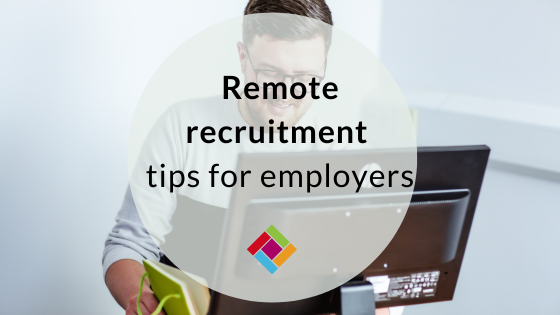
Remote or virtual recruitment is now the norm for many businesses, but how do you get the most from it? We have put together some top tips on getting it right.
Check candidates are happy
It’s important to establish during the telephone screening stage whether employees feel comfortable conducting online interviews, and in a lot of cases – joining a business and onboarding remotely.
Sort your tech in advance
Check that candidates are able to access the video software you are asking them to use. If you’re interviewing a number of candidates in a limited period then sort this out in advance. Get candidates to test the software beforehand to check they are confident using it.
Manage the admin remotely
Contracts of employment and handbooks can all be sent electronically, and digital signatures used as part of the entire remote recruitment process.
Onboard remotely
Put together a slick induction and training programme which works online. If your new recruit is working from home then schedule in regular team video calls. These are essential for motivation and promoting the team spirit. Daily or weekly video calls in the first few weeks will help to keep the connection, but also allow them to raise any issues or questions. It’s important that they are not ‘left to their own devices’ or feel abandoned.
Keep the rest of the team in the picture
Be sure to update the wider team on the new recruit, with details of their background and their role. In turn, it’s important to introduce the team to the new starter so that they know who they will be working with and the structure of the business. In the absence of a team lunch or meeting, you may consider a short video summarising who is who, and how they will fit into the business.
Points to be aware of
There are clear advantages of remote recruitment, saving the business time and money. If you require a few managers to attend at the interview stage it’s easier to coordinate diaries for online meetings rather than physical meet-ups. However, the disadvantages are that many people may feel awkward or uncomfortable being assessed over video. Remember that they may not come across in the same way they would in person. Conversation can be trickier and rapport harder to build. Do make exceptions for this when reviewing the interviews.
It’s also harder for you, the employer, to sell the business remotely – an equally important part of the interview. Send videos/information in advance to the candidates so they can get a full sense of the company and its ethos before they ‘meet’ you.
Review as you go along
Once the employee has joined, ask for feedback. Keep the communication going to motivate them and ask for feedback on the role, the systems and the working structure. This way you can iron out any issues as you go along and adapt along the way. You can also conduct an HR health check to understand where you could improve.
Reminder – the top seven tips for remote recruitment:
- Check they are happy to be interviewed via video during the telephone screening stage.
- Check the tech works / candidates have access to it before the scheduled interview dates.
- Allow for nerves and appreciate that candidates may feel uncomfortable being interviewed in this way.
- Check during the interview stage that they will be happy with the suggested work pattern (ie working from home/office) and how they feel about travelling to and from the workplace.
- Make sure you have a streamlined training programme planned and a robust onboarding strategy for their first few weeks.
- Schedule regular check-ins/video catch-ups to keep them motivated.
- Set up team catch-ups so they feel part of the business and ask for regular feedback.
To find out how we could help with your recruitment, book your call here.